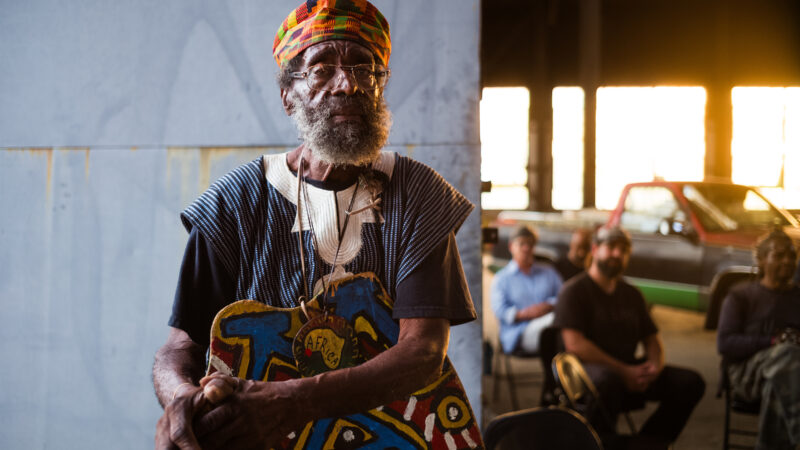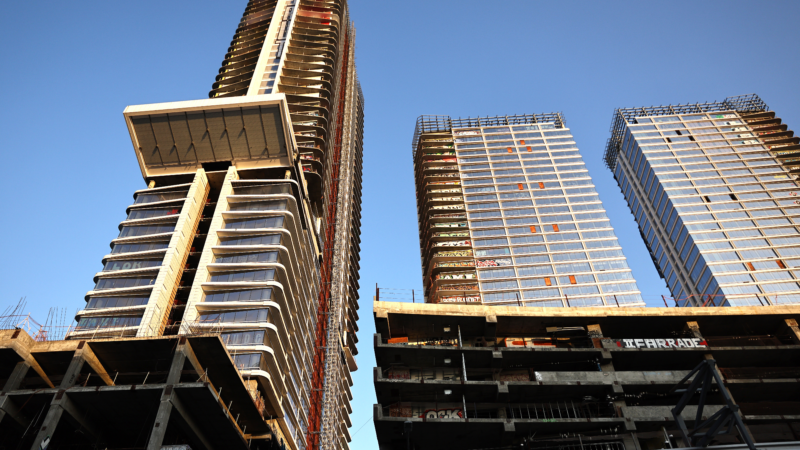From scrap to sculpture: Joe Minter’s art reflects Birmingham’s pain and joy
Artists often use their surroundings to influence their work. In the case of Birmingham artist Joe Minter, his sculptures can’t be separated from his life in the city – literally.
A site-specific exhibit in Titusville recently honored Minter’s legacy. “Joe Minter is Here” highlighted Minter’s life and artwork. The exhibit, in a centuries-old steel foundry called Marc Steel, was designed in a circular, labyrinth style. It operated as a history museum and as an art museum. Visitors saw Minter’s artwork, but they also learned more about him.
Tyler Jones is the exhibit’s creative director. He said the location has connections to Minter’s story.
“He applied to work here in the late ‘80s and early ‘90s during a period of unemployment. He and his brother were taken by Bull Connor’s police force and wrongfully arrested. His brother was assaulted by police across the street in what’s now Memorial Park,” Jones said.
But Minter’s work was also an aesthetic match for the warehouse.
“The nature of his work being made of steel and the iron and industrial texture, it really feels of this place, which made train wheels over a century ago.”
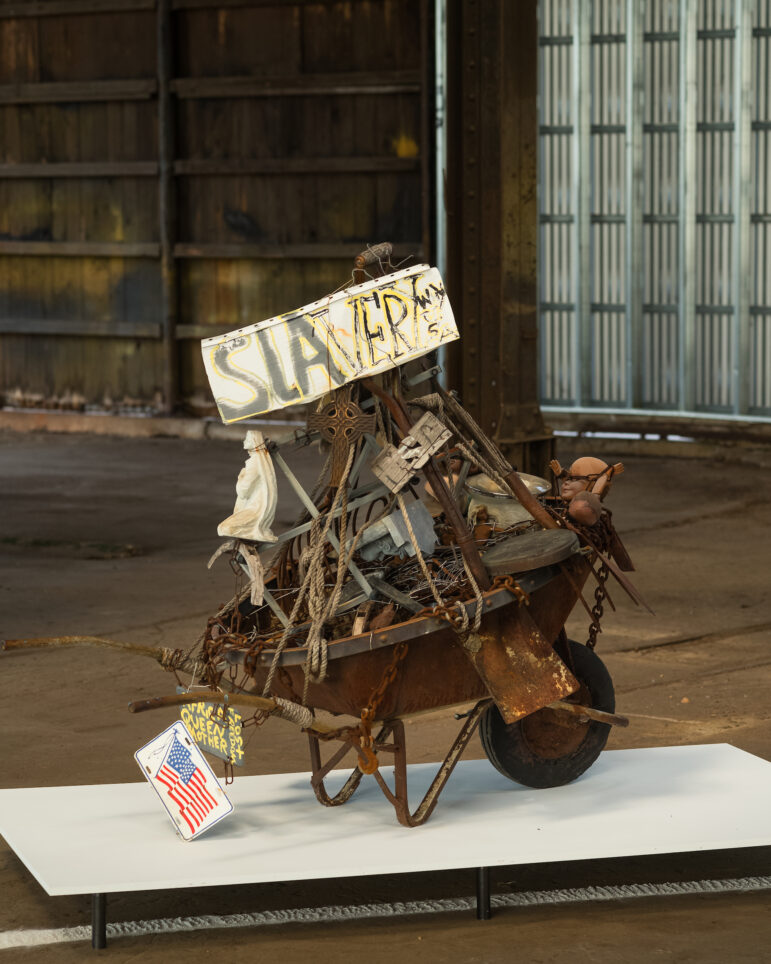
Minter creates sculptures using discarded items. Car wheels, bicycle gears, chains and scrap metal are fundamental elements of his pieces.
“In his work in particular, using discarded materials, found objects, to draw these connections between what he would say are discarded people,” Jones said.
He felt that it was important to acknowledge the foot soldiers of the Civil Rights Movement. His work is intended to speak for those who tend to be forgotten.
Although there’s social and political commentary laced within Minter’s work, there is also an element of fantasy and joy.
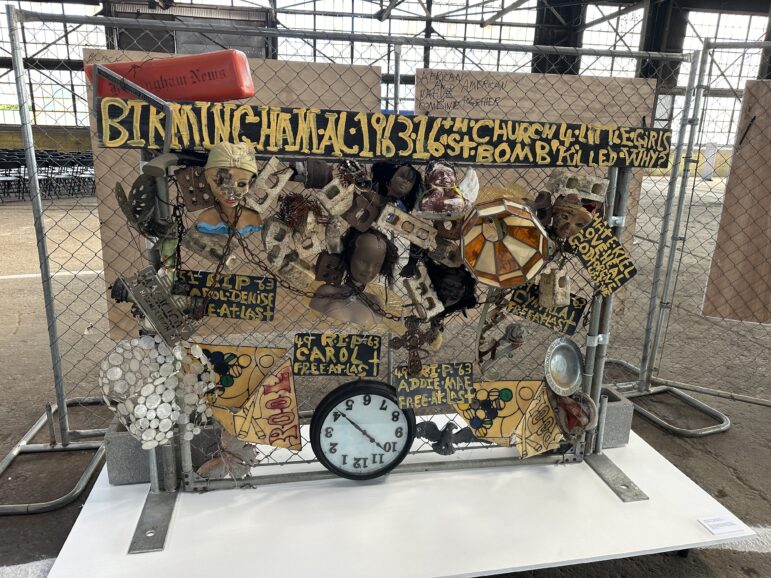
In his piece about the 16th Street Baptist Church bombing, the found objects add whimsy. The four little girls who died in the bombing are represented by tattered dolls. Glass shards are made to look like stained glass. Doves and butterflies are woven into parts of the fencing.
Minter’s art shows a different America – one where atrocities take the forefront and the flag symbolizes oppression rather than freedom. But it’s also an art that chronicles survival. That finds joy amidst the pain.
Minter’s open-air museum
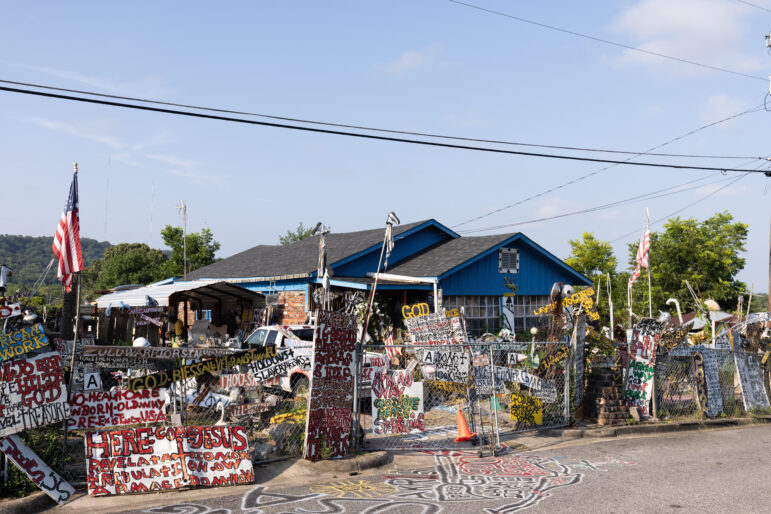
Minter became a part of a Deep South tradition called yard shows. Many Black artists resorted to yard shows because art museums were segregated.
“While you might not have access to the museum, the yard became a space to express your ideas about the freedom movement,” Jones said.
Minter’s most popular collection of sculptures, African Village in America, is on display in his yard in Titusville. The street he lives on is lined with his work. It’s an introduction to what you can expect to see in the African Village.
On this day, Minter came to the front gate wearing protective glasses and a hard hat covered in “I Voted” stickers. He showed the space he considers to his studio – a patch of concrete near his front door. Minter said when it comes to his having a studio, he’s happy using nature.
“God contacts you from what’s around you. All of this, all of the stars and the moon and universe, and God is looking down and He can see everything you’re doing,” Minter said.
The space was surrounded by African-inspired sculptures and signage written in his signature font. One piece was recently repurposed from a sign he found at a Goodwill store. Minter said everything about his art is related to Birmingham.
“And when I say everything, the brutality and humility of being whooped and beat, picked up off the street and thrown in a steel mill,” he said.
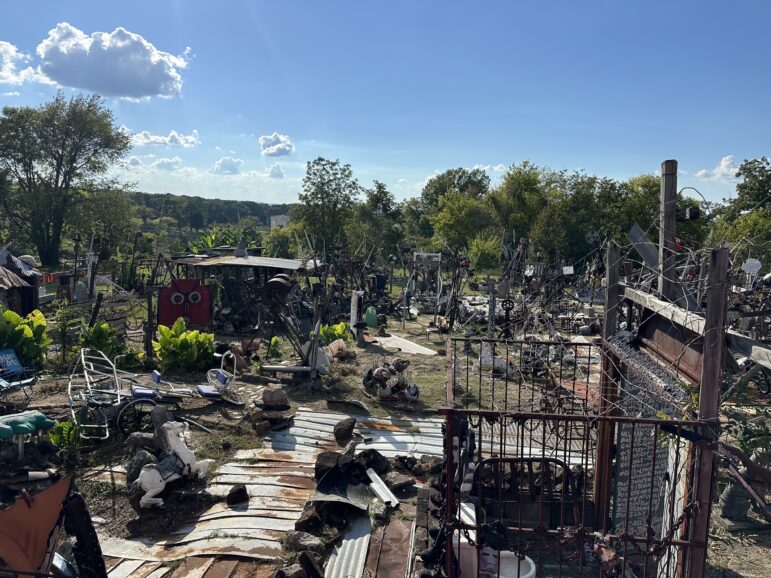
The African Village is located in the backyard. Minter called it an ancestral burial ground. He said his art environment at his home documents 400 years of the Black experience.
The field of sculptures was a breathtaking sight. It represents one person’s work to allow enslaved Black people to rest in peace. To close out this tour, Minter brought out his drum and banged a rhythm for those who lost their lives during the slave trade.
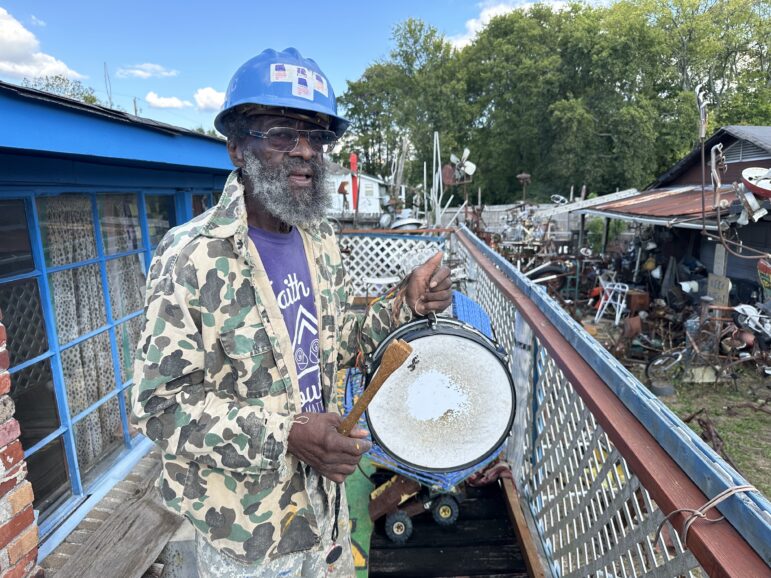
Mystery drones flying over New Jersey have residents and officials puzzled
The drones have been seen above critical infrastructure like reservoirs, rail stations and military bases. The governor says there is "no known threat," but the FBI is still investigating.
Police say gun found with suspect matches casings at UnitedHealthcare CEO crime scene
The New York police commissioner also said investigators matched Luigi Mangione's fingerprints with those found on items near the scene where the UnitedHealthcare CEO was fatally shot last week.
FBI Director Wray to resign at end of Biden administration
Wray told employees at an FBI town hall that he is resigning next month to "avoid dragging the Bureau deeper into the fray." President-elect Donald Trump called the resignation "a great day for America."
The U.S. is facing a severe housing shortage. Will Trump’s proposals help?
The U.S. is short approximately four million homes. Wharton economist Ben Keys traces the beginning of the housing crisis to the 2008 financial meltdown — and says climate change is making things worse.
Shot in secret, ‘The Seed of the Sacred Fig’ calls out Iran’s authoritarian regime
Earlier this year, Iranian filmmaker Mohammad Rasoulof fled his country to escape an eight-year prison sentence. His new film centers on a middle class family grappling with Iran's social unrest.
Saudi Arabia will host the 2034 FIFA World Cup — a controversial pick
FIFA's selection of Saudi Arabia to host the World Cup was celebrated in the kingdom but criticized by human rights groups, who fear residents, visitors and migrant workers will be at risk of abuse.
